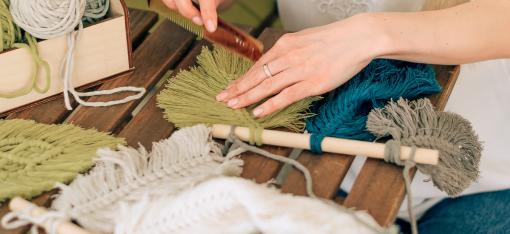
MACRAME
Recycled Cotton Macrame Cords And Macrame Supplies
Discover all kinds of macrame cotton cord for your DIY macrame projects. Get the recycled macrame cotton rope for your geometric macrame wall hangings and macrame plant hangers; use the macrame soft cotton cord to get a boho macrame or weaving look; enjoy the colorful macrame cotton balls and cotton cones to make any kind of macrame jewelry; and create with the macrame premium cotton cord to get a luxurious look and feel on your macrame pieces.
FAQs
































